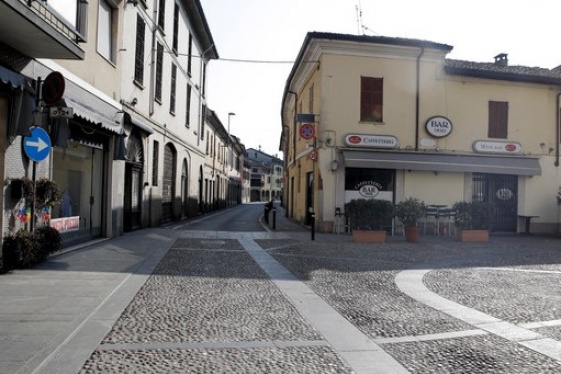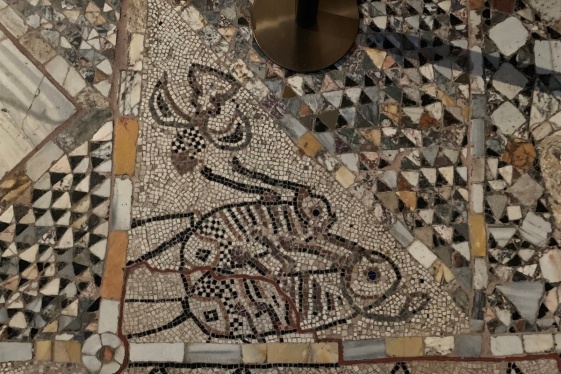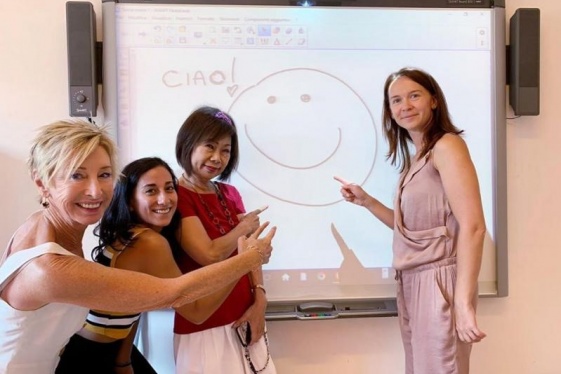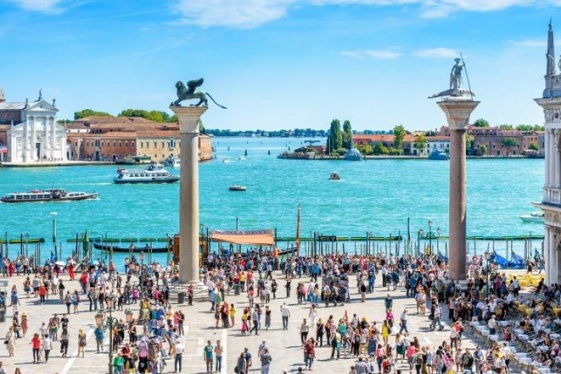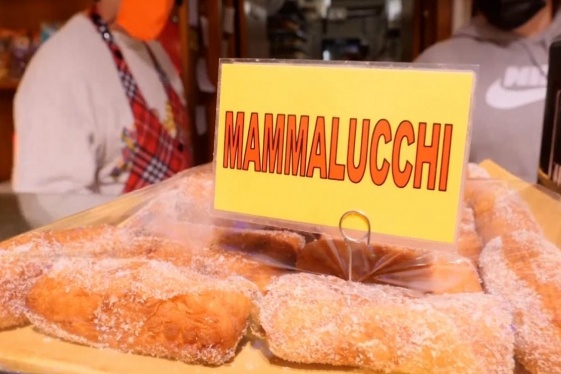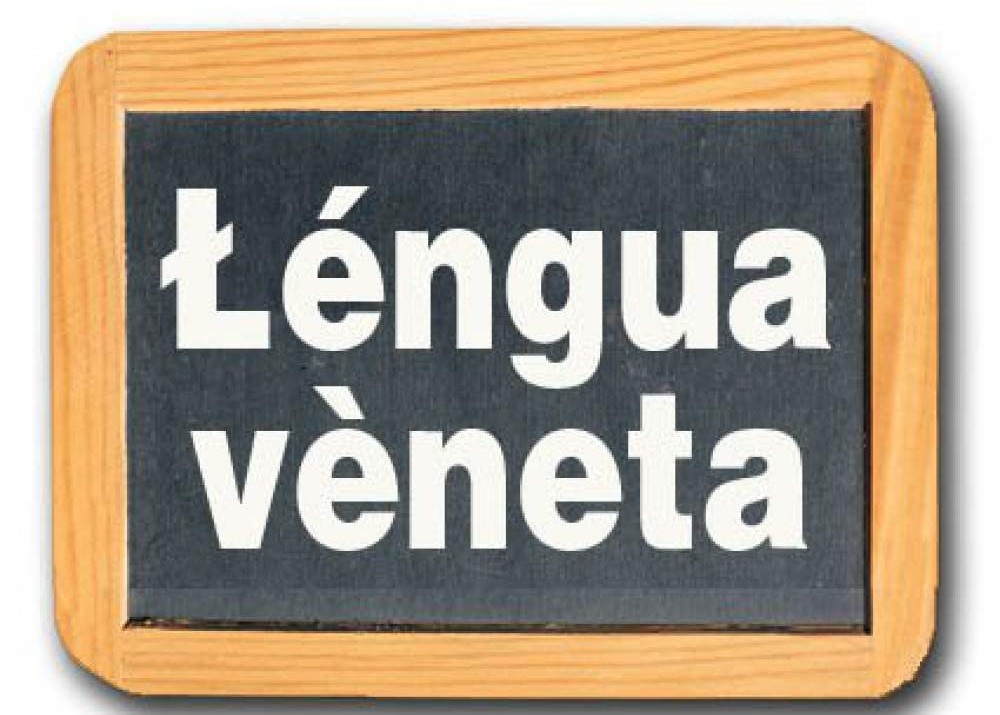

Let’s continue our journey through all the languages and dialetti spoken in Italy. Today, we’ll talk about the lingua veneta, the language that takes its name from the north-eastern region of Veneto.
Lingua veneta is an Indo-European language,developed from vulgar Latin, so just like Italian is a Romance language, but it is a much older language, in fact there is evidence of its existence already in the 8thcentury. The people who speak this language live more or less in what is now the Veneto region. Moreover, veneto was used in the past as a Maritime lingo in the the Mediterranean. Let’s say Italian pirates would talk to each other in veneto. However, we need to be clear: it must not be confused with the lingua venetica, which is totally different – don’t worry we’ll talk about it another time! – or considered an Italian dialect. Veneto is more connected to the Italy’s northern neighbors and therefore considered more a southern German dialect. And that’s how we know this language is older than the national one, because it was already used under the Austrian presence on the Italian peninsula.
But from that moment on, veneto has a long history of both conquests and literature. Some events that are relevant are the constitution of the Republic of Venice, which established venetoas the official language along with Latin and Tuscan, and the Napoleonic conquests that in 1797 made French the official language, but, just as in many other invasions, veneto remained the language of the population. In addition, right after the unification of Italy, there was an initiative to teach veneto in school and make it a co-official language of the region, but the advent of Fascism interrupted the process. The troubled history did not stop people from using the language everyday and in artistic ways: even though one of the most famous Venetians, Marco Polo, wrote The Travels of Marco Polo (Il Milione in Italian) in a variation of French, many other artists wrote literature and songs in veneto and even translated Homer into this language. One of the most famous is Carlo Goldoni, who transformed the way theater and commedia dell’arte was made in the 18th century.
But now? What’s of veneto today? Well, since May 4th, 1999, veneto is officially a language not only recognized by the UNESCO but also by Italy. That means that according to the article 6, all those who speak veneto are protected as a minority language by the Italian constitution. But who speaks it today? A bunch of people actually! 1992, the Italian National Institute of Statistics (ISTAT) reported that more than 50% of the population in Veneto spoke veneto, and more recent researches shows that it is spoken by around 2,200,000 people in Italy and 50,000 in Croatia. And by 2004 more than 14,000 people in Brazil! Yes, Brazil, even though the language changed a bit its name there and it is called talian. Why is that? The same ol’ reason: immigration. In fact, Italian, more precisely Venetians, emigrated to Brazil from 1870 to 1905 and brought their language and culture with them. Talian is still the official language, along with Portuguese, in Brazil where those populations are strongly present.
But let’s get back to our Italian “version.” Veneto is the name of the big umbrella that embraces many other variations. The experts don’t really agree upon the official subdivision of the language but more or less these are the most commonly recognized: veneziano lagunare in the Venetian lagoon area, veneto settentrionale in north, veneto occidentale in the west, veneto del mar, literally “of the sea,” in the east, veronese in the Verona area, trevigiano in the Treviso area, feltrino-bellunese in the Feltrino and Belluno area, istro-dalmata in Croatia – what used to be the Italian regions of Istria and Dalmatia – and finally (!) veneto colonial spoken in areas where La Serenissima Republic of Venice colonized.
What does it sound like? It’s hard to explain but I’ll try. First of all, in its written form it has many “x”s but they are all pronounced more or less like a “z:” for instance “che” – that – is written xe and pronounce “zeh.” But also “dh” or “th” sound like “z” or more frequently like “s:” dhugare– in Italian: giocare, in English: play – is pronounced “zoh-gah-reh” and thinque– in Italian: cinque, in English: five – is pronounced “sinqu-eh.” “G,” “gi,” “gg,” and the dreaded “gli” is substituted by a “j” – pronounced like “ee” – while the letter “l” is a tricky one because it is sometimes pronounced and sometimes is silent and sometimes it turns into a “r.” I could keep going for pages, but I’ll spare you that.
I’ll end with an old, funny/mocking rhyming poem – do not take it literally!: Veneziani, gran Signori; Padovani, gran dotori; Visentini, magna gati; Veronesi ... tuti mati; Udinesi, castelani co i cognòmj de Furlani; Trevisani, pan e tripe; Rovigòti, baco e pipe e Belun?...pòro Belun te sì proprio de nessun – People from Venice are great lords, people from Padua are great doctors, people from Vicenza are cat-eaters, people from Verona are all crazy, people from Udine are squires with Friulan last names, people from Treviglio are tripe-eaters, people from Rovigo drink wine and smoke. And Belluno? Poor Belluno you belong to no one!
You may be interested
-
Italian world language teacher 2015-2016
FRAMINGHAM PUBLIC SCHOOLS - JOB DESCRIPTION TITLE: World Language Teacher - Italian...
-
Pavarotti. Il mondo di Big Luciano. Anteprim...
Il mondo di Luciano Pavarotti e la sua grande carriera di cantante lirico rivivranno il 23...
-
'Alone': How Italian town with 1st known viru...
Italy delivered the first shocking confirmation of locally transmitted coronavirus infecti...
-
'Dragon Bones' of Santa Maria e San Donato
The Basilica of Santa Maria e San Donato dates to the seventh century, back when the islan...
-
'I've enjoyed every moment' - USMNT's Gianluc...
Busio moved to Venezia in August 2021, with the club breaking its own transfer record to s...
-
'Italy Stay Strong': What The Coronavirus Eme...
On the northern coast of Sicily, looking out toward the magnificent Aeolian Islands, Milaz...
-
'Italy Stay Strong': What the Coronavirus Eme...
“Venice is in my blood,” says tour guide Nadia Danesin, the founder of Friend in Venice, h...
-
'Mammalucchi': The Venetian pastry delicacy c...
Lovers of the Venice Carnival know it means masks and costumes, but also tasty delicacies...





